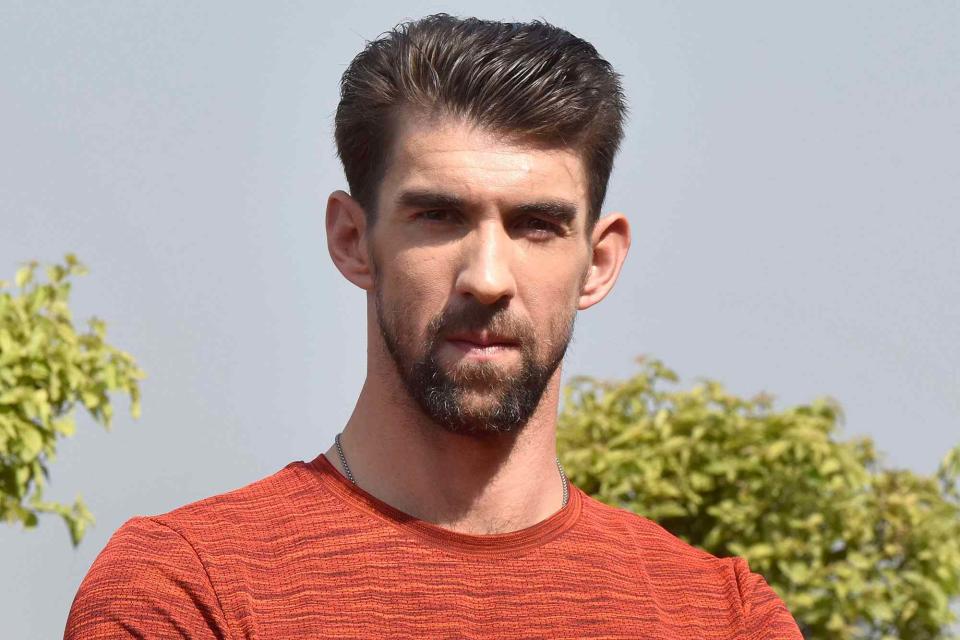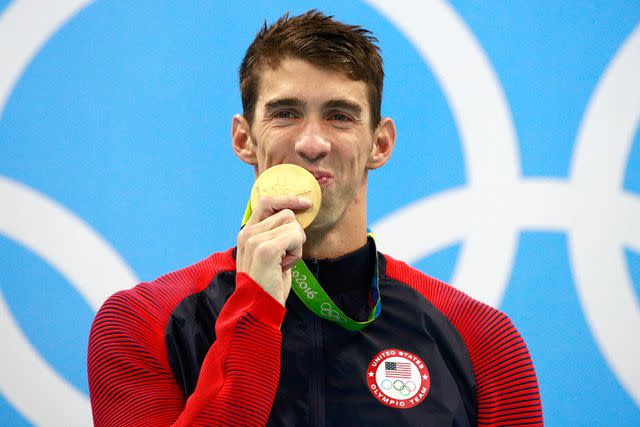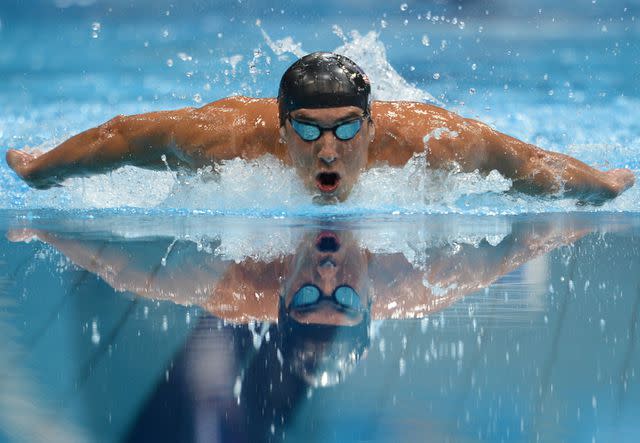Michael Phelps Opens Up About 'Looking Suicide in the Eye' and Managing His Mental Health (Exclusive)
- Oops!Something went wrong.Please try again later.
The most decorated Olympian tells PEOPLE how he learned to be vulnerable and nurture his mental well-being

"I'm a Cancer. That's what we do," he tells PEOPLE. As a kid, though, "I wanted to be a superhero," says Phelps, 37.
Growing up, the Olympian learned to compartmentalize his emotions at a young age. "As an athlete, I couldn't show weakness," Phelps explains.
"I'd compartmentalize things and I used them to fuel me, which at the time, yes, they were great," he says of his legendary career as a swimmer, which of course includes his 28 Olympic medals, "but in the long run, those things piled up and I became a volcano, and that's not healthy."
"Two weeks later, two months later, you get sideswiped by all of these emotions that reappear that you thought you handled. I could go for hours about compartmentalization."
Never miss a story — sign up for PEOPLE's free daily newsletter to stay up-to-date on the best of what PEOPLE has to offer, from juicy celebrity news to compelling human interest stories.
As one of the greats, Phelps took a Michael Jordan-esque approach to competing.
"I was like Jordan in a way where I could create these stories and these narratives in my head that make me go to a different level, and I think if you find or chat with any of the greats, I feel like we all have that in us but I think there could be a more healthy approach to that. I probably could have won a couple more gold medals that way, but that's not something to really be proud of."

These days, Phelps is passionate about advocating for mental health awareness through therapy. In partnership with Talkspace, Phelps hopes opening up to the world about his own struggles with mental health will inspire others to nurture their own well-being.
"There are definitely ways to pass the records that have already been broken while paying attention to your mental and physical well-being at the same time," he explains.
Before finding therapy, "When I looked in the mirror, I saw a swimmer, not a human," Phelps shares.
Related:Michael Phelps on Why It's 'Challenging' for Athletes to Admit Their Mental Health Struggles
In 2014, Phelps was arrested for a DUI in Baltimore and spent 45 days in a group therapy program that would influence the rest of his life.
"Coming out and really talking about in 2014 when I was looking suicide in the eye, it took me becoming vulnerable to have a chance at this thing called life," Phelps says.

Unbottling the emotions he'd buried for years in front of "a group of strangers" was "awkward," Phelps admits. "You're just supposed to spill it all out, and you're like, 'This is awkward.' But honestly, afterward, I didn't compare myself to what everyone was going through."
His first one-on-one therapy session with a therapist was another new challenge for the gold medalist.
"I remember going up the elevator and I was like, 'Well, here you go,' and I guess the running joke is that we all go in and sit on that leather couch, and I walked in and saw a leather couch. I was like, 'Oh s---, there's some truth to this," he says with a chuckle.
Going in, "I didn't know what therapy was going to do or not do for me, but I just got to the point where I said, 'I don't care what it feels like or what people say, I want to feel better,' and I'm somebody that, if there's one hundred different roads that I can take, I'm going to try every single one of them."
Related:Michael Phelps Says Therapy 'Saved' Him During His Darkest Moment: 'I Didn't Want to Be Alive'
That first session kicked off a lifetime of vulnerability for Phelps that he's learned to embrace.
"Leaving the office that day, I felt like a different person. I'm sure I cried my eyes out. My shoulders were higher, almost like there was a weight that was taken off of my back," says Phelps.
Staying consistent with his mental wellness has become "a part of my everyday mission," he says. "There are days when I wake up feeling like a million bucks, but there are days where, at times, I'd almost rather be six feet underground."

The key, according to Phelps, is finding "that happy medium" every day. "Being able to celebrate every single step that you go through on your journey is important."
Phelps is a self-identified "process person," he says. "For me, process is everything. It's those little steps that are important."
With 23 Olympic gold medals in swimming, Phelps admits he "wouldn't change anything" about his competitive run in the sport, but if given the chance, he'd change "one thing" about his upbringing. "I would pay attention to my mental wellbeing more," he says.
Now when Phelps, arguably the greatest swimmer of all time, looks at himself in the mirror, he likes what he sees. "Coming out of treatment, I got to look at myself in the mirror and be like, 'Oh, cool. I like this person. I can get along with this guy.'"
For more People news, make sure to sign up for our newsletter!
Read the original article on People.

